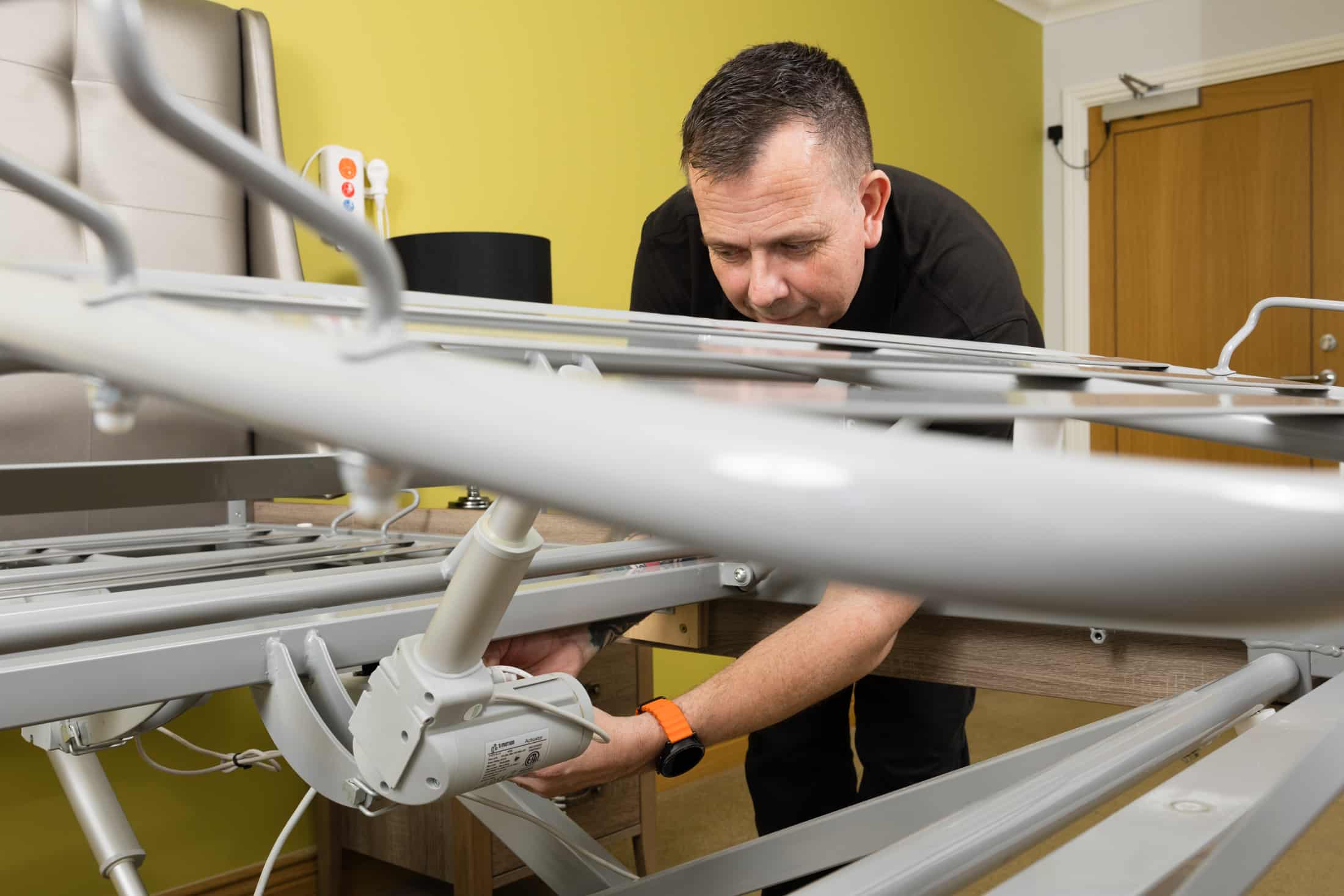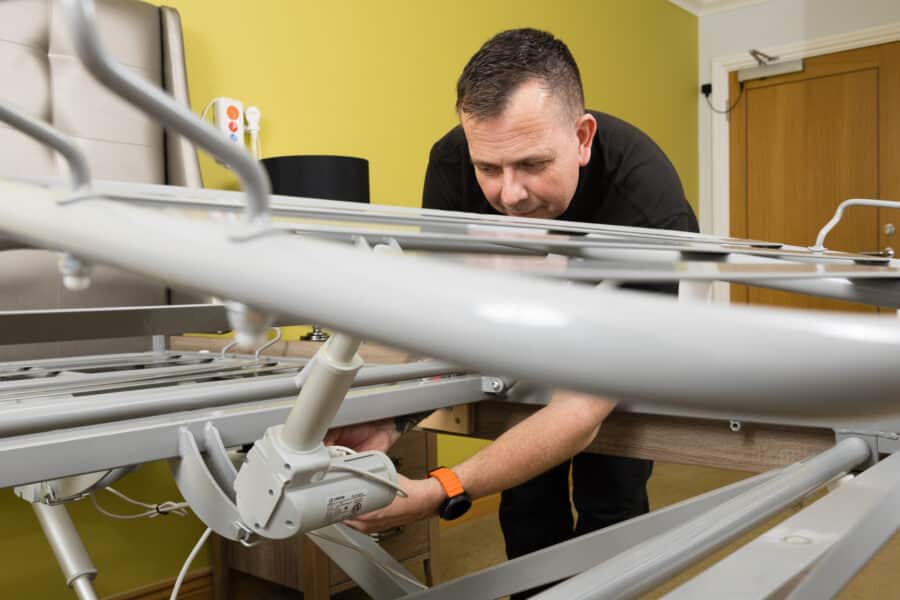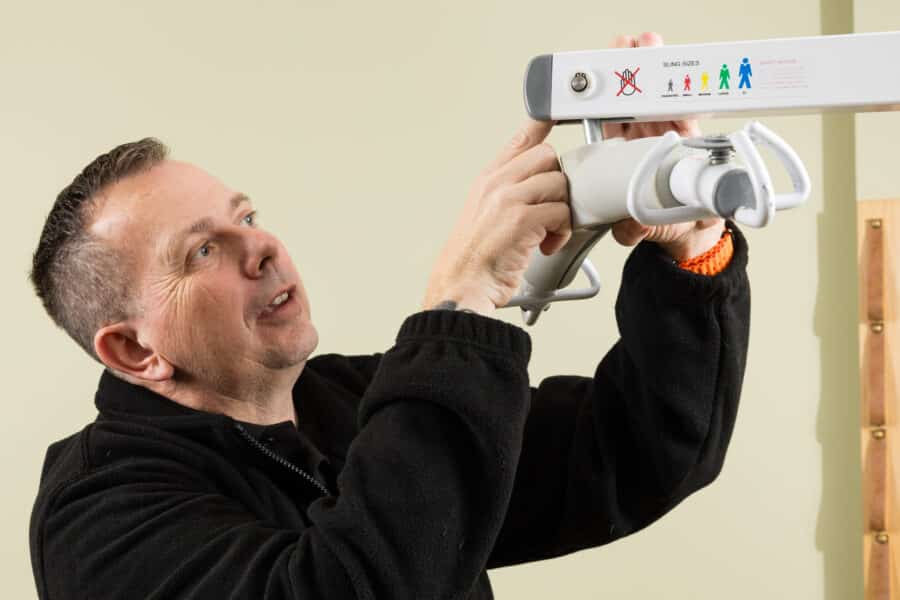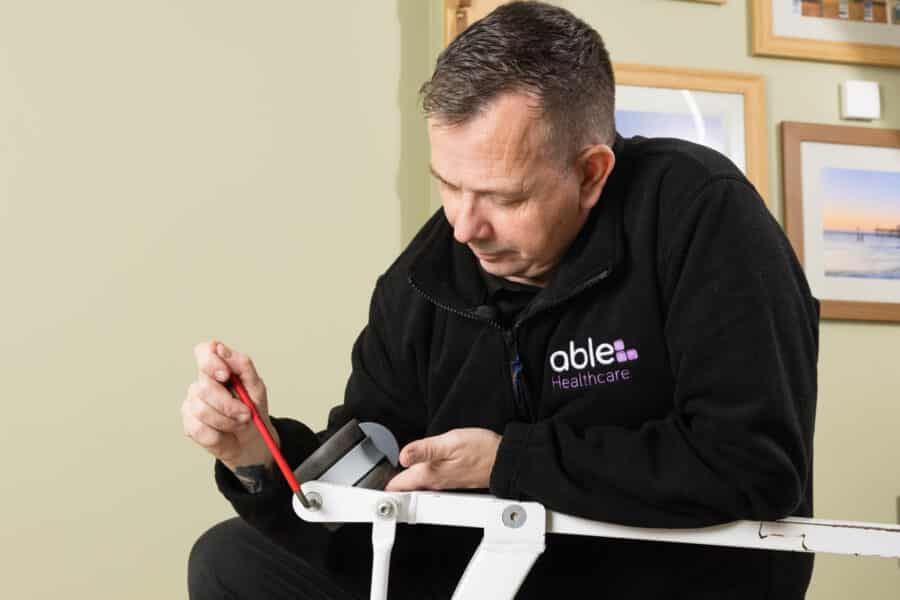Marlon from Able here to talk about something I’m very passionate about— care home equipment maintenance. In our industry, ensuring that care equipment runs smoothly is vital for the loved ones and residents you support. However, let’s face it—things can and do go wrong. Often, it’s due to simple, avoidable mistakes.
That’s why I want to highlight some common care home equipment maintenance mistakes and help you and your team keep your equipment functioning better, for longer!
Common Mistakes
1. Neglecting Regular Inspections
First and foremost, skipping regular inspections is one of the most common and easily preventable issues. Many people assume that if equipment appears to be working fine, it doesn’t need servicing. However, regular and periodic maintenance is key to catching small issues before they become major problems. Before your next six-monthly thorough examination, it’s worth reviewing your documentation and equipment condition in a structured way. Our LOLER inspection checklist for care homes outlines exactly what inspectors look for and helps you prepare properly ahead of your next compliance visit. It’s also important to understand which regulations apply to your equipment. In care homes, lifting equipment may fall under both LOLER and PUWER, each with different inspection and safety requirements. Our guide to the difference between LOLER and PUWER in care homes explains how these regulations overlap and what managers must do to stay compliant.
We offer a range of solutions—from asset management to LOLER test scheduling—to make this process as simple and stress-free as possible. We’ve got you covered!
An Able engineer maintaining a hoist
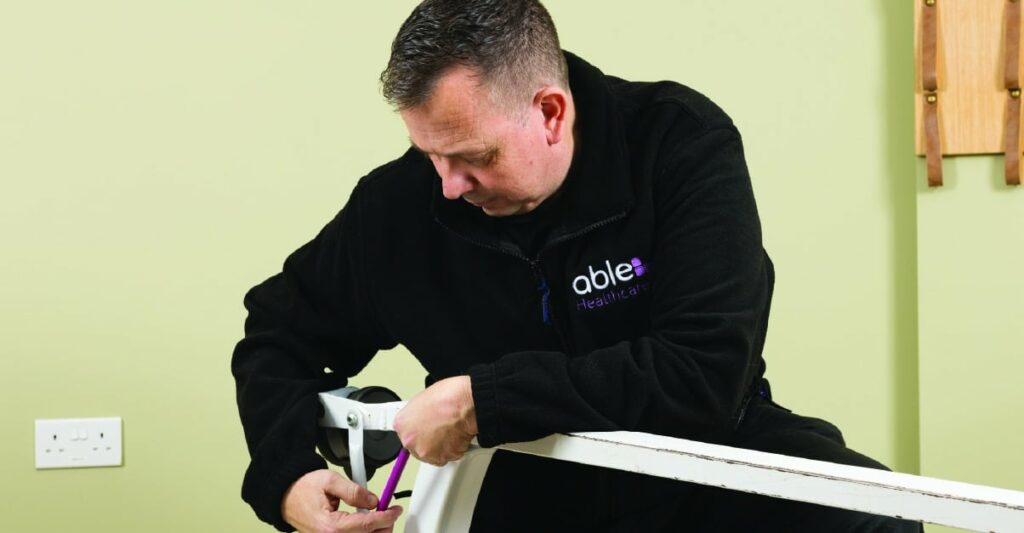
An Able engineer maintaining a hoist
2. Skipping Manufacturer Guidelines
Next, it’s essential to follow the manufacturer’s maintenance instructions. Every piece of equipment has specific care requirements. Disregarding these can lead to inefficiencies, breakdowns, or even safety risks.
3. Overlooking Calibration
Another critical mistake is forgetting to calibrate equipment regularly. In healthcare, precision matters. Without proper calibration, equipment may deliver inaccurate readings—potentially affecting diagnoses and patient care.
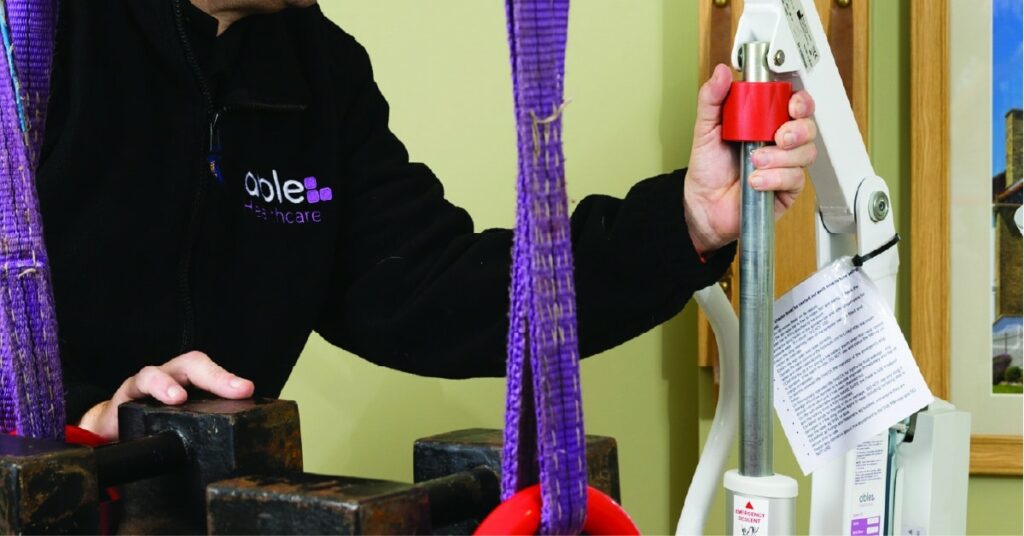
Calibration is an important part of care home equipment maintenance
4. Using Improper Cleaning Practices
Also, cleaning is more than just keeping things tidy. Effective cleaning is vital for infection control and extending equipment life. Using incorrect cleaning agents or techniques can damage delicate components or leave harmful residues behind.
Question of the day: Why is care home equipment important? Find out here!
5. Ignoring User Training
It’s equally important not to underestimate the value of staff training. Improper use is a leading cause of equipment breakdowns and early wear. Proper training ensures your team operates equipment safely and correctly.
6. Failing to Document Maintenance
Maintenance records are often overlooked. But they’re more than just admin—they’re a valuable tool for tracking service history, identifying repeat issues, and proving compliance with regulations.
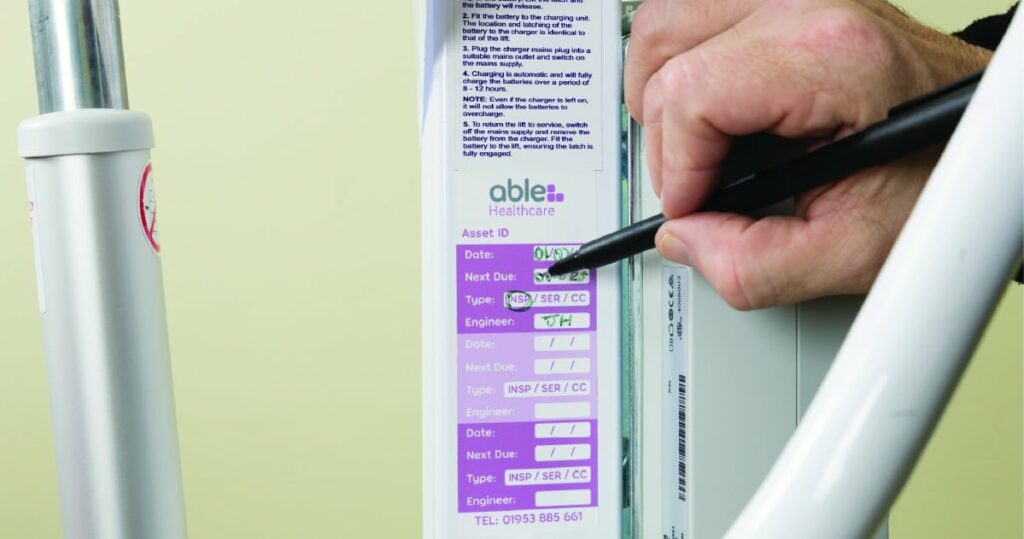
Able’s Asset Management System ensures an accurate equipment history
7. Neglecting Environmental Factors
Environmental conditions like temperature and humidity can also impact equipment performance. Failing to monitor these factors can lead to faster wear and sudden failures.
8. Delaying Repairs
Lastly, delaying necessary repairs can make matters worse. Addressing issues promptly helps prevent more serious damage, reduces downtime, and saves money in the long run.
Our engineers are fully trained on the latest equipment from the most trusted brands. Whether it’s installation, routine servicing, or urgent repairs, we’re here to keep your equipment safe and reliable—giving you peace of mind and protecting your residents. Consider downloading our LOLER Brochure – Beyond Compliance to get the full picture of our equipment services.
Care Home Equipment Pitfalls FAQ’s
What happens if manufacturer maintenance guidelines are ignored?
Skipping manufacturer instructions can cause breakdowns, reduce efficiency, and even create safety risks. Each piece of equipment has specific care requirements that should always be followed.
Why is calibration essential in care homes?
Calibration ensures equipment provides accurate readings. Without it, results can be misleading, which can affect diagnoses, treatment, and overall resident care quality.
How does cleaning impact care equipment?
Using the wrong cleaning agents or methods can damage sensitive components or leave harmful residues. Correct cleaning practices are vital for infection control and extending equipment life.
Why is staff training important for equipment use?
Improper use is one of the top causes of breakdowns and early wear. Training staff ensures equipment is used safely and correctly, protecting both residents and the equipment.
What is the value of keeping maintenance records?
Maintenance documentation provides a service history, helps identify recurring issues, and proves compliance during inspections. It’s a crucial part of effective equipment management.
How do environmental conditions affect equipment performance?
Factors like humidity, dust, and temperature can cause wear and sudden failures. Monitoring conditions helps prolong equipment lifespan and prevent unexpected downtime.
Why should repairs be done promptly in care homes?
Delaying repairs can make equipment problems worse, increase downtime, and raise costs. Prompt repairs keep equipment safe, reliable, and compliant.
